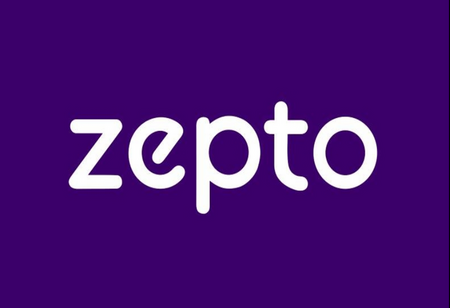Zepto: How Two Stanford Dropouts Revolutionized the Quick Commerce Space
By Consultants Review Team
 India was fighting the Covid-19 epidemic in mid-2020, and the country was under strict lockdown. The pandemic had brought India to a halt, putting a strain on the supply system. The most difficult difficulty for individuals confined to their houses was obtaining daily necessities such as wheat flour and detergents without leaving their homes. Aadit Palicha and Kaivalya Vohra, two youngsters trapped in a cramped flat in Mumbai's Andheri East's Sher-e-Punjab neighborhood, decided to take action.
India was fighting the Covid-19 epidemic in mid-2020, and the country was under strict lockdown. The pandemic had brought India to a halt, putting a strain on the supply system. The most difficult difficulty for individuals confined to their houses was obtaining daily necessities such as wheat flour and detergents without leaving their homes. Aadit Palicha and Kaivalya Vohra, two youngsters trapped in a cramped flat in Mumbai's Andheri East's Sher-e-Punjab neighborhood, decided to take action.
"Most online delivery apps took seven to ten days to deliver essential items, and mom-and-pop stores were closed." "As a result, we decided to cater to the many elderly people who lived in the area," explains Palicha. The couple, childhood friends who dropped out of Stanford University to pursue their entrepreneurial goals, invested Rs 3-4 lakh in KiranaKart, partnering with food stores to serve their neighborhood. As the service grew in popularity and the number of subscribers reached 200 by November, they received a $125,000 investment from Y Combinator as part of its early-stage programme. Zepto, a quick commerce app, will be released in April 2021.
Zepto has developed enormously in the three years since its humble beginnings, becoming a unicorn—one of the fastest Indian companies to reach this milestone. Zepto was valued at $1.435 billion in its most recent round of investment in November 2023, when it raised $235.4 million.
Furthermore, Zepto has been able to attract investors even while some of the country's best start-ups struggle to stay afloat, and funding has dried up for many in the aftermath of global economic concerns and geopolitical turbulence. Zepto has also expanded beyond Mumbai, with offices in places like Delhi, Bengaluru, and Chennai.
One of the primary reasons for Zepto's success has been its unique offering of delivering everyday necessities—from veggies and fresh meat to alkaline batteries and pet-care items—to the customer's door within 10 minutes. While Swiggy's Instamart, Reliance Industries-backed Dunzo, Zomato's Blinkit, and Tata's big basket compete in the quick commerce space, there is a secret sauce that sets them apart, but mostly goes unnoticed: the founders' bonding and seamless alignment of their vision.
Palicha owes his and Vohra's understanding to the fact that they are great friends and grew up together. They met as children at school in Dubai, where they both grew up. Both went on to Stanford, and then to the start-up incubator Y Combinator; they stayed in touch when Palicha co-founded GoPool, a smartphone app that enabled parents with children to coordinate with one another and carpool to and from school. "See, KV (as Palicha affectionately refers to his business partner) and I are best buddies... "We've both loved building [things] since we were kids, and the bond (between us) is strong," Palicha says.
Their responsibilities at Zepto are well defined. While the clean-shaven Palicha oversees the rapid commerce venture's operations, finances, and growth engine, the bearded Vohra is in charge of its tech, goods, and data science requirements. Palicha believes this is for obvious reasons. "KV has always been much smarter and technically adept than I have been," he said.
With Zepto already present in ten major Indian cities, Palicha and Vohra anticipate significant growth while achieving Ebitda (earnings before interest, tax, depreciation, and amortization) profitability by FY25. And, as Palicha demonstrates, Zepto has a three-pronged strategy to do this. The first, he argues, is to grow Zepto's presence within its existing markets rather than outside, as this may have an impact on profitability. Second, Zepto will accelerate the opening of dark stores (huge warehouses that stock goods to complete requests) by 40-50 percent every year, allowing it to expand deeper. In FY23, for example, it established 60 dark locations, and by the end of June 2023, its total store count was 223. According to Palicha, the third component of the strategy is not raising any further capital from investors shortly. According to him, Zepto has raised approximately $568 million to date. "Our primary goal is to expand while improving profitability." "By FY25, we expect to be Ebitda positive," Palicha tells BT.
In FY23, Zepto's operating revenue increased 14 times to Rs 2,024 crore, up from Rs 142.4 crore the previous fiscal. However, its net loss increased to Rs 1,272 crore, up from Rs 390 crore in FY22. Palicha anticipates the top line to rise multiple times in FY24, like it did in FY23. He goes on to say that Zepto will be able to enhance its margins "very quickly." While all of this is going on, Zepto will not lose sight of its USP of 10-minute doorstep delivery. When they achieve this, Palicha and Vohra will truly be known as the dynamic duo of fast trade.




